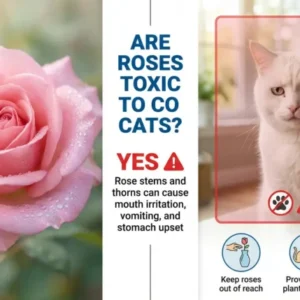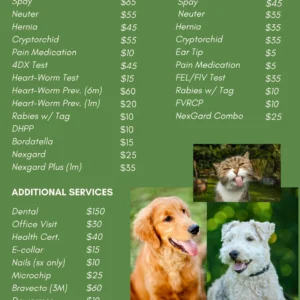Which best reptile pets should you get? With so many different types of reptiles available, it can be hard to know where to start. That’s why we’ve put together this guide to the best reptile pets for beginners.
Editor’s Note: This guide to best reptile pets was last updated on March 8, 2023.
We’ve done the research and consulted with experts to bring you everything you need to know about choosing the best reptile pets. We’ll cover everything from the different types of reptiles to their care requirements. So whether you’re a first-time reptile owner or you’re just looking for a new addition to your family, we’ve got you covered.
Key Differences
| Characteristic | Bearded Dragon | Leopard Gecko | Corn Snake |
|---|---|---|---|
| Size | 18-24 inches | 8-10 inches | 2-4 feet |
| Lifespan | 8-10 years | 10-15 years | 15-20 years |
| Diet | Insects, vegetables, fruits | Insects, mealworms | Rodents, small mammals |
| Habitat | Desert terrarium | Dry terrarium | Enclosure with hiding places |
| Temperament | Docile | Docile | Can be shy |
Transition to main article topics
Best Reptile Pets
When choosing a reptile pet, there are many factors to consider, such as the size, temperament, diet, and habitat requirements of the animal. Here are 10 key aspects to keep in mind when selecting the best reptile pet for you:
- Size: Reptiles come in a wide range of sizes, from small geckos to large snakes. Choose a reptile that is an appropriate size for your home and lifestyle.
- Temperament: Some reptiles are more docile than others. Choose a reptile that is known for being gentle and easy to handle.
- Diet: Reptiles have different dietary needs. Some reptiles eat insects, while others eat rodents or plants. Choose a reptile that has a diet that you are comfortable with providing.
- Habitat: Reptiles need a specific type of habitat to thrive. Some reptiles need a warm, dry environment, while others need a humid, tropical environment. Choose a reptile that has habitat requirements that you can meet.
- Lifespan: Reptiles can live for a long time. Some reptiles live for only a few years, while others can live for decades. Choose a reptile that has a lifespan that you are comfortable with.
- Availability: Some reptiles are more common than others. Choose a reptile that is easy to find and purchase.
- Cost: Reptiles can vary in price. Some reptiles are relatively inexpensive, while others can be quite expensive. Choose a reptile that fits your budget.
- Care: Reptiles require regular care, such as feeding, cleaning, and veterinary checkups. Choose a reptile that you are willing and able to care for properly.
- Legality: Some reptiles are illegal to own in certain areas. Choose a reptile that is legal to own in your area.
- Allergies: Some people are allergic to reptiles. If you have allergies, choose a reptile that you are not allergic to.
These are just a few of the key aspects to consider when choosing the best reptile pet for you. By doing your research and choosing a reptile that is a good fit for your lifestyle, you can enjoy many years of companionship with your new pet.
Size
The size of a reptile is an important consideration when choosing a pet. A reptile that is too large for your home or lifestyle can be difficult to care for and may become a danger to you or your family. Conversely, a reptile that is too small may not be able to get the exercise and stimulation it needs to stay healthy.
When choosing a reptile pet, it is important to consider the following factors:
- The size of your home: A large reptile will need a large enclosure, which may not be feasible in a small home.
- Your lifestyle: If you are frequently away from home, you will need a reptile that is relatively low-maintenance. A large reptile may require more frequent feeding and cleaning than a smaller reptile.
- Your experience level: If you are a first-time reptile owner, it is best to start with a smaller, easier-to-care-for reptile. Once you have gained some experience, you can then consider getting a larger reptile.
By considering these factors, you can choose a reptile pet that is the right size for your home and lifestyle.
Here are some examples of reptiles that are appropriate for different home sizes and lifestyles:
| Home Size | Lifestyle | Suitable Reptiles |
|---|---|---|
| Small | Low-maintenance | Leopard geckos, crested geckos, gargoyle geckos |
| Medium | Moderate maintenance | Bearded dragons, corn snakes, ball pythons |
| Large | High-maintenance | Green iguanas, Burmese pythons, reticulated pythons |
It is important to note that these are just general guidelines. There are many other factors to consider when choosing a reptile pet, such as the reptile’s diet, habitat, and temperament. It is always best to do your research and consult with a veterinarian before bringing a reptile home.
Suggested read: What Is The Best Carpet Cleaner Solution For Pet Urine
Temperament
The temperament of a reptile is an important consideration when choosing a pet. A reptile that is docile and easy to handle is more likely to be a good pet for a beginner or for someone who does not have a lot of experience handling reptiles. Conversely, a reptile that is aggressive or difficult to handle may not be a good choice for a first-time reptile owner.
-
Facet 1: Importance of docility
A docile reptile is less likely to bite, scratch, or otherwise harm its owner. This is important for both safety and peace of mind. A reptile that is easy to handle is also more likely to be cooperative during feeding, cleaning, and other routine care tasks.
-
Facet 2: Breeds known for docility
Some breeds of reptiles are known for being more docile than others. These breeds include leopard geckos, crested geckos, bearded dragons, and corn snakes. These reptiles are typically gentle and easy to handle, even for beginners.
-
Facet 3: Factors influencing temperament
The temperament of a reptile can be influenced by a number of factors, including its genetics, its environment, and its experiences. A reptile that is raised in a positive environment and is handled regularly is more likely to be docile than a reptile that is raised in a negative environment or is not handled regularly.
-
Facet 4: Assessing temperament
When choosing a reptile pet, it is important to assess the reptile’s temperament before bringing it home. This can be done by observing the reptile’s behavior in a pet store or breeder’s facility. A reptile that is calm and relaxed is more likely to be a good pet than a reptile that is aggressive or fearful.
By considering the temperament of a reptile before bringing it home, you can increase your chances of choosing a reptile that is a good fit for your lifestyle and personality.
Diet
The diet of a reptile is an important consideration when choosing a pet. A reptile that has a diet that you are comfortable with providing is more likely to be a healthy and happy pet. Conversely, a reptile that has a diet that you are not comfortable with providing may become malnourished or sick.
-
Facet 1: Types of reptile diets
There are three main types of reptile diets: insectivores, carnivores, and herbivores. Insectivores eat insects, carnivores eat meat, and herbivores eat plants. Each type of diet has its own specific requirements, so it is important to choose a reptile that has a diet that you are comfortable with providing.
-
Facet 2: Nutritional needs of reptiles
Suggested read: Is Scotts Liquid Turf Builder Safe For Pets
Reptiles have specific nutritional needs that must be met in order to stay healthy. These needs vary depending on the species of reptile, but all reptiles need a diet that is high in protein and low in fat. Reptiles also need a variety of vitamins and minerals in their diet.
-
Facet 3: Feeding frequency and portion size
The frequency with which you feed your reptile and the portion size of each feeding will vary depending on the species of reptile. Some reptiles need to eat every day, while others only need to eat once or twice a week. It is important to follow the feeding guidelines for your specific species of reptile.
-
Facet 4: Live vs. frozen food
Some reptiles eat live food, while others eat frozen food. Live food can be more nutritious than frozen food, but it can also be more dangerous. Frozen food is less nutritious than live food, but it is also less dangerous.
By understanding the dietary needs of reptiles, you can choose a reptile that has a diet that you are comfortable with providing. This will help to ensure that your reptile is healthy and happy.
Habitat
Reptiles are ectothermic, which means that they rely on external heat sources to regulate their body temperature. This means that the habitat you provide for your reptile must be able to maintain a temperature that is within the reptile’s preferred range. In addition, some reptiles need a humid environment, while others need a dry environment. It is important to choose a reptile that has habitat requirements that you can meet.
-
Facet 1: Temperature requirements
The temperature requirements of reptiles vary depending on the species. Some reptiles, such as leopard geckos, prefer warm, dry environments. Other reptiles, such as green iguanas, prefer humid, tropical environments. It is important to research the specific temperature requirements of the reptile you are considering before bringing it home.
-
Facet 2: Humidity requirements
The humidity requirements of reptiles also vary depending on the species. Some reptiles, such as ball pythons, prefer humid environments. Other reptiles, such as bearded dragons, prefer dry environments. It is important to research the specific humidity requirements of the reptile you are considering before bringing it home.
-
Facet 3: Enclosure size
The size of the enclosure you need for your reptile will depend on the size of the reptile and its activity level. Some reptiles, such as corn snakes, are very active and require a large enclosure. Other reptiles, such as crested geckos, are less active and can be kept in a smaller enclosure.
Suggested read: Craigslist Columbus Ohio Lost Pets
-
Facet 4: Furnishings
The furnishings you provide in your reptile’s enclosure will depend on the species of reptile. Some reptiles, such as leopard geckos, need a hiding place to feel secure. Other reptiles, such as green iguanas, need a basking spot to warm themselves.
By understanding the habitat requirements of reptiles, you can choose a reptile that is a good fit for your home and lifestyle. This will help to ensure that your reptile is healthy and happy.
Lifespan
The lifespan of a reptile is an important consideration when choosing a pet. A reptile that has a long lifespan may be a good choice for someone who is looking for a long-term commitment. However, a reptile that has a short lifespan may be a better choice for someone who is not looking for a long-term commitment or who is not experienced in caring for reptiles.
-
Facet 1: Considerations for Choosing a Reptile with a Lifespan that Fits Your Needs
When choosing a reptile pet, it is important to consider your lifestyle and how much time you are willing to commit to caring for the animal. Some reptiles, such as leopard geckos, have a relatively short lifespan of 5-10 years. This may be a good choice for someone who is looking for a pet that they can enjoy for a few years but does not want to make a long-term commitment. Other reptiles, such as ball pythons, have a much longer lifespan of 20-30 years. This may be a better choice for someone who is looking for a pet that they can enjoy for many years to come.
-
Facet 2: Financial Implications of Reptile Lifespan
The lifespan of a reptile can also have financial implications. Reptiles can require specialized food, housing, and veterinary care. These costs can add up over the course of the reptile’s lifetime. It is important to factor these costs into your decision when choosing a reptile pet.
-
Facet 3: Emotional Implications of Reptile Lifespan
The lifespan of a reptile can also have emotional implications. Reptiles can become beloved members of the family. Losing a reptile pet can be a difficult experience. It is important to be prepared for the emotional challenges that can come with owning a reptile pet.
-
Facet 4: Commitment to Proper Care Over the Reptile’s Lifespan
Owning a reptile is a commitment to providing proper care for the animal throughout its lifespan. This includes providing the reptile with a suitable habitat, a healthy diet, and regular veterinary care. It is important to be prepared to make this commitment before bringing a reptile home.
By considering the lifespan of a reptile before bringing it home, you can make an informed decision about whether or not a reptile is the right pet for you.
Availability
When choosing a reptile pet, it is important to consider the availability of the animal. Some reptiles are more common than others, and some may be difficult to find or purchase. Choosing a reptile that is readily available will make it easier to find a healthy and well-cared-for animal.
Suggested read: Secret Life Of Pets Soundtrack New York
-
Facet 1: Factors Affecting Reptile Availability
There are several factors that can affect the availability of a reptile. These factors include the popularity of the reptile, the ease of breeding the reptile, and the legality of owning the reptile in your area. Some reptiles, such as leopard geckos and corn snakes, are very popular and easy to breed. This makes them widely available and relatively inexpensive. Other reptiles, such as Komodo dragons and Gila monsters, are rare and difficult to breed. This makes them less available and more expensive.
-
Facet 2: Importance of Choosing an Available Reptile
There are several benefits to choosing a reptile that is readily available. First, you are more likely to find a healthy and well-cared-for animal. Second, you will have an easier time finding supplies and resources for your reptile. Third, you will be less likely to pay a high price for your reptile.
-
Facet 3: Considerations for Choosing an Available Reptile
When choosing a reptile, it is important to consider your budget, your lifestyle, and your experience level. If you are a beginner, it is best to choose a reptile that is easy to care for and readily available. Once you have gained some experience, you can then consider getting a more rare or difficult-to-care-for reptile.
-
Facet 4: Legal Implications of Reptile Availability
It is important to check the laws in your area before purchasing a reptile. Some reptiles are illegal to own in certain areas. If you are caught owning an illegal reptile, you could be fined or even jailed. In addition, some reptiles may require a permit or license to own. Be sure to check the laws in your area before bringing a reptile home.
By considering the availability of a reptile before bringing it home, you can increase your chances of choosing a healthy and well-cared-for animal that is a good fit for your lifestyle and experience level.
Cost
The cost of a reptile can vary depending on a number of factors, including the species of reptile, its age, its size, and its rarity. Some reptiles, such as leopard geckos and corn snakes, are relatively inexpensive and can be purchased for less than $100. Other reptiles, such as bearded dragons and green iguanas, are more expensive and can cost several hundred dollars.
It is important to factor the cost of a reptile into your decision-making process when choosing a pet. The cost of the reptile itself is just one factor to consider. You will also need to factor in the cost of food, housing, and veterinary care. The cost of these items can vary depending on the species of reptile and its size.
If you are on a budget, there are a number of affordable reptiles that you can choose from. Leopard geckos, corn snakes, and ball pythons are all relatively inexpensive and easy to care for. These reptiles can make great pets for beginners.
If you are looking for a more exotic reptile, you will need to be prepared to pay a higher price. Bearded dragons, green iguanas, and chameleons are all more expensive than leopard geckos and corn snakes. However, these reptiles can make great pets for experienced reptile keepers.
Suggested read: All About Pets Chico
No matter what your budget is, there is a reptile that is right for you. By doing your research and considering the cost of the reptile and its care, you can choose a reptile that will fit your budget and lifestyle.
Table: Cost of Reptiles
| Species | Average Cost |
|---|---|
| Leopard gecko | $50-$100 |
| Corn snake | $50-$100 |
| Ball python | $100-$200 |
| Bearded dragon | $200-$400 |
| Green iguana | $300-$500 |
| Chameleon | $400-$600 |
Care
Choosing the best reptile pet for you involves considering the level of care that the animal requires. Reptiles have specific needs that must be met in order to stay healthy and happy. These needs include providing the reptile with a proper diet, a suitable habitat, and regular veterinary care.
For example, if you choose a reptile that requires live food, you need to be prepared to purchase and feed the reptile live insects or rodents on a regular basis. If you choose a reptile that requires a humid environment, you need to be prepared to provide the reptile with a humidifier or other means of maintaining humidity in its enclosure. And if you choose a reptile that is prone to health problems, you need to be prepared to take the reptile to the veterinarian for regular checkups and treatment.
Failing to provide your reptile with the proper care can lead to health problems, behavioral problems, and even death. Therefore, it is important to choose a reptile that you are willing and able to care for properly.
Table: Care Requirements of Common Reptile Pets
| Species | Diet | Habitat | Veterinary Care |
|---|---|---|---|
| Leopard gecko | Insects | Dry terrarium | Annual checkups |
| Corn snake | Rodents | Enclosure with hiding places | Annual checkups |
| Ball python | Rodents | Enclosure with hiding places | Annual checkups |
| Bearded dragon | Insects, vegetables, fruits | Desert terrarium | Annual checkups |
| Green iguana | Vegetables, fruits | Humid terrarium | Annual checkups |
| Chameleon | Insects | Humid terrarium with live plants | Annual checkups |
Legality
One of the most important factors to consider when choosing a reptile pet is the legality of owning the animal in your area. Some reptiles are illegal to own in certain areas due to concerns about public safety, the potential for the animal to become an invasive species, or the conservation status of the animal in the wild.
For example, in the United States, the importation and interstate transport of certain reptiles, such as the Burmese python and the reticulated python, is prohibited under the Lacey Act. These snakes are considered to be invasive species in the United States, and their release into the wild could have devastating consequences for native wildlife.
In addition, some states have their own laws regulating the ownership of reptiles. For example, in California, it is illegal to own a venomous reptile without a permit. In New York City, it is illegal to own any reptile that is more than six feet long.
It is important to check the laws in your area before purchasing a reptile. If you are caught owning an illegal reptile, you could be fined or even jailed. In addition, your reptile may be confiscated and euthanized.
By choosing a reptile that is legal to own in your area, you can avoid these risks and ensure that your pet is safe and well-cared for.
Table: Legality of Reptile Ownership in the United States
| State | Laws Regulating Reptile Ownership |
|---|---|
| California | It is illegal to own a venomous reptile without a permit. |
| Florida | There are no state laws regulating the ownership of reptiles. However, some cities and counties have their own ordinances regulating reptile ownership. |
| New York | It is illegal to own any reptile that is more than six feet long. |
| Texas | There are no state laws regulating the ownership of reptiles. However, some cities and counties have their own ordinances regulating reptile ownership. |
Allergies
Reptiles can produce allergens that can trigger allergic reactions in some people. These allergens can be found in the reptile’s saliva, skin, and dander. Allergic reactions to reptiles can range from mild, such as sneezing and watery eyes, to severe, such as anaphylaxis.
If you have allergies, it is important to choose a reptile that you are not allergic to. You can do this by visiting a reptile breeder or pet store and spending time with different types of reptiles. If you experience any allergic symptoms, such as sneezing, watery eyes, or difficulty breathing, you should avoid that particular type of reptile.
Suggested read: Do Mini Cows Make Good Pets
There are a number of different types of reptiles that are less likely to cause allergic reactions. These include leopard geckos, corn snakes, and ball pythons. These reptiles are all relatively small and produce fewer allergens than other types of reptiles.
If you are allergic to reptiles, it is still possible to own a reptile pet. You can take steps to reduce your exposure to allergens, such as wearing a mask when handling your reptile and washing your hands thoroughly after handling your reptile. You can also keep your reptile in a well-ventilated area.
By taking these precautions, you can enjoy the companionship of a reptile pet without experiencing allergic reactions.
Table: Reptiles that are less likely to cause allergic reactions
| Species | Size | Temperament |
|---|---|---|
| Leopard gecko | Small | Docile |
| Corn snake | Small to medium | Docile |
| Ball python | Medium to large | Docile |
FAQs on Best Reptile Pets
Question 1: What are the benefits of owning a reptile pet?
Reptile pets can provide companionship, stress relief, and a sense of responsibility. They can also be educational, as they can teach owners about the natural world. Additionally, some reptiles can live for many years, providing owners with a long-term commitment.
Question 2: What are the challenges of owning a reptile pet?
Reptile pets can require specialized care, such as specific temperatures, humidity levels, and diets. They can also be expensive to purchase and maintain. Additionally, some reptiles can be aggressive or difficult to handle.
Question 3: What are the most popular types of reptile pets?
The most popular types of reptile pets include leopard geckos, corn snakes, ball pythons, bearded dragons, and green iguanas. These reptiles are relatively easy to care for and can make good pets for beginners.
Question 4: How do I choose the right reptile pet for me?
When choosing a reptile pet, it is important to consider your lifestyle, experience level, and budget. You should also research the specific needs of the reptile you are considering, such as its diet, habitat, and lifespan.
Question 5: What are the signs of a healthy reptile?
Suggested read: Will I See My Pets In The Afterlife
Signs of a healthy reptile include bright eyes, clear skin, and a strong appetite. The reptile should also be active and alert. If you notice any changes in your reptile’s behavior or appearance, you should take it to a veterinarian.
Question 6: How can I provide the best care for my reptile pet?
To provide the best care for your reptile pet, you should provide it with a suitable habitat, a healthy diet, and regular veterinary care. You should also handle your reptile with care and respect.
Summary: Choosing the best reptile pet for you involves considering your lifestyle, experience level, and budget. You should also research the specific needs of the reptile you are considering. By providing your reptile with the proper care, you can enjoy many years of companionship with your new pet.
Transition to the next article section: If you are considering getting a reptile pet, be sure to do your research and choose a reptile that is right for you.
Tips for Choosing the Best Reptile Pets
Choosing the best reptile pet for you involves considering your lifestyle, experience level, and budget. Here are five tips to help you choose the right reptile pet for you:
Tip 1: Do your research.
Before you purchase a reptile pet, it is important to do your research and learn about the specific needs of the animal. This includes researching the reptile’s diet, habitat, lifespan, and temperament. You should also research the legality of owning the reptile in your area.
Tip 2: Consider your lifestyle.
When choosing a reptile pet, it is important to consider your lifestyle. If you are frequently away from home, you will need a reptile that is relatively low-maintenance. If you have young children, you will need a reptile that is docile and easy to handle.
Tip 3: Consider your experience level.
If you are a first-time reptile owner, it is best to start with a smaller, easier-to-care-for reptile. Once you have gained some experience, you can then consider getting a larger, more challenging reptile.
Tip 4: Consider your budget.
Reptiles can vary in price, so it is important to consider your budget when choosing a pet. The cost of the reptile itself is just one factor to consider. You will also need to factor in the cost of food, housing, and veterinary care.
Suggested read: Craigslist Mt Pets For Sale
Tip 5: Choose a reputable breeder or pet store.
When purchasing a reptile pet, it is important to choose a reputable breeder or pet store. This will help to ensure that you are getting a healthy animal that has been properly cared for.
Summary: Choosing the best reptile pet for you involves considering your lifestyle, experience level, and budget. By following these tips, you can choose a reptile pet that is right for you and that you will enjoy for many years to come.
Transition to the article’s conclusion: If you are considering getting a reptile pet, be sure to do your research and choose a reptile that is right for you.
Conclusion
Choosing the best reptile pet for you involves considering your lifestyle, experience level, and budget. By doing your research and following the tips outlined in this article, you can choose a reptile pet that is right for you and that you will enjoy for many years to come.
Reptiles can make great pets, but it is important to remember that they are not for everyone. If you are considering getting a reptile pet, be sure to do your research and choose a reptile that is right for you. With proper care and handling, reptiles can make wonderful companions.





